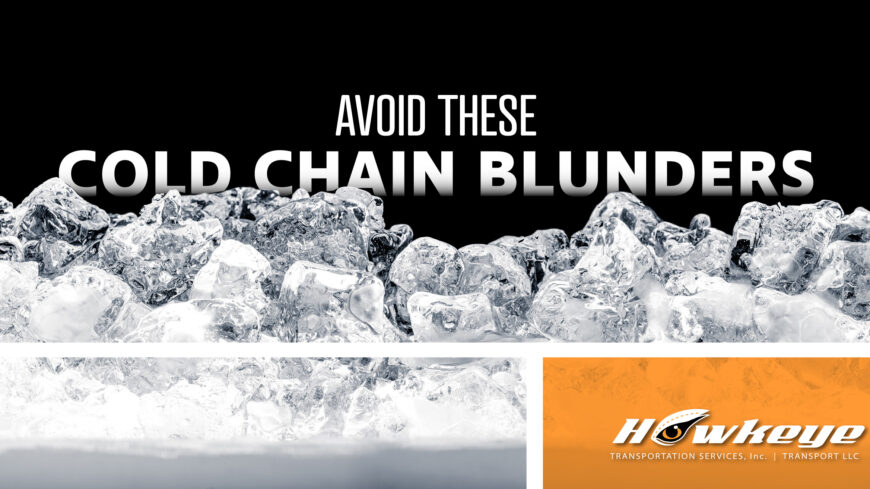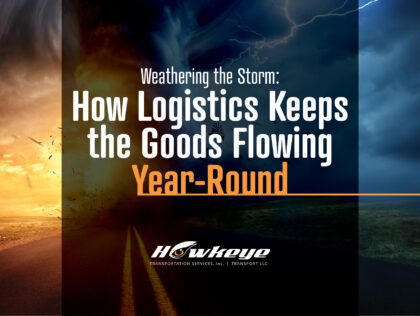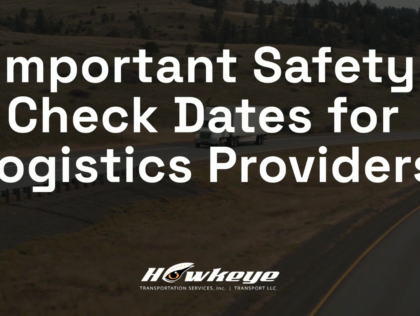Cold chain systems are vital to the continued growth of global trade of food and health supplies.
Companies in the cold chain industry have had decades to refine the complexities involved in keeping temperature-sensitive products safe in transit. Many of these companies are seeking to establish reliable cold chains that guarantee that products always arrive in good condition and are safe for consumption, regardless of the destination – from fresh tomatoes to frozen foods to life-saving pharmaceuticals.
But as with any industry, some challenges that can have serious safety and financial consequences. The damage doesn’t just waste time and money – it has many farther-reaching repercussions.
Over one-third of the world’s food is lost to spoilage each year due to poor or inadequate temperature control techniques in-transit. This not only affects the availability of food sources, but also life-saving medical treatments across the world. 1
According to the International Trade Administration, “global losses in the food industry total more than $750 billion annually. These losses primarily result from lack of proper facilities, improper food safety handling procedures, and insufficient training for those personnel working in the cold chain. Additionally, over $260 billion of annual bio-pharma sales are dependent on cold chain logistics to ensure the efficacy of their products.”2
Lack of Proper Facilities
Technology, infrastructure, and cold chain standards are different across the world and even across state lines, making it difficult to guarantee that the products will arrive to their destination in a safe condition. Inadequate cooling options, temperature-controlled warehouses, and varied cooling standards are all factors that can contribute to loss or spoilage.
Improper Handling Procedures
Careless staff, inadequate training, non-compliance with established protocols, and inefficient use of equipment are some of the typical reasons for product loss in cold chains. When the people handling delicate food or pharmaceutical shipments do not have the proper training, products can easily be damaged. Damage typically happens in several ways:
- CONDENSATION: Product can produce excessive moisture if it moves from one temperature to the next too quickly. Not only can condensation buildup cause slippery surfaces, creating a safety hazard for workers, but it can also cause product spoilage, creating a health risk for consumers.3
- MOLD/MILDEW: Mismanaged temperatures or broken freezer doors can create mold or mildew growth, creating unhealthy working environments and product spoilage. 3
- HEAT: Prolonged exposure to warm outside temperatures during loading and unloading is a common problem that can degrade temperature-reliant foods, pharmaceuticals, and other goods.3
- DAMAGE: Broken or damaged pallets and containers can have a huge impact on profitability due to product loss or spoilage3
Typically, improper food and drug safety handling procedures stem from insufficient training for those personnel working in the cold chain industry.
We ensure that all our employees are highly trained, and our transportation expertise in refrigerated freight means you are working with a partner who knows how to handle your cargo. We emphasize a culture of safety and compliance and ensure that all our drivers and staff have completed food safety training.
We have a long history of safety awards, so you know that your loads are in good hands. In addition to ensuring food safety, our driving safety is a high priority. Hawkeye has won 9 consecutive years of the Platinum Safety Award from Great West Casualty, which recognizes freight carriers with exemplary safety records. Additionally, we provide increased protection to our customers and ourselves with elevated insurance coverage that sets us apart from our competitors.
At Hawkeye, ‘best practices’ aren’t just a theory. Our specialization in Refrigerated Freight services means that we can move any load, keep it in good condition, and deliver it on time.
CONTACT US today to experience our always honest, always responsible approach.
SOURCES:



